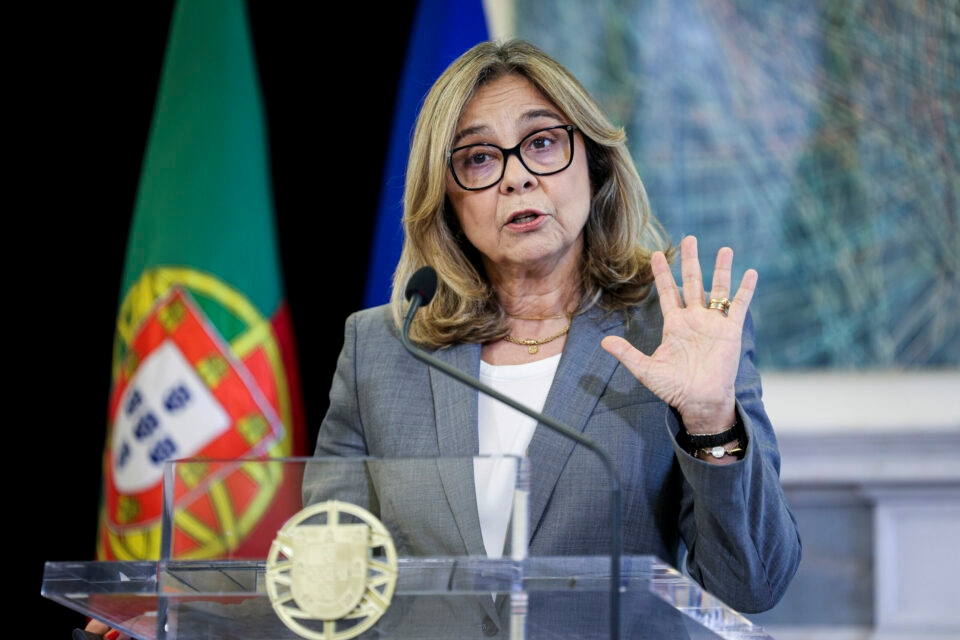IBGE union says new world map “compromises credibility”

The National Union of IBGE Workers Association (ASSIBGE-SN) spoke out about the new version of the world map launched by the institute last Wednesday (7).
According to a post on social media, the initiative, instead of informing and representing reality, distorts and creates a “symbolic staging that compromises the credibility built by IBGE over decades of serious, impartial and globally respected work”.
According to the trade union association, the country faces social problems, such as structural inequality, educational deficiencies, insecurity, loss of competitiveness and, stating that these problems cannot be combated with “graphic illusions”.
The group also criticized the management of the Brazilian Institute of Geography and Statistics (IBGE), claiming that “instead of protecting the public function of the Institute, it has insisted on pushing it into the field of image, allegory, and promotional action.”
ASSIBGE-SN is responsible for the rights and interests of IBGE employees. The statement of repudiation was published by the Chilean Nuclerus of the Association, located in the city of Rio de Janeiro.
Check out the full note:
Manifesto for the Technical Integrity of IBGE
In defense of science, institutional reason and the real Brazil
The Coordination of the Chilean Trade Union Nucleus – ASSIBGE/SN, which represents the workers at the base of the Chile/Horto Complex of the Brazilian Institute of Geography and Statistics (IBGE), expresses, based on constitutional, technical and ethical commitment, repudiation of the official publication of the inverted world map, in which Brazil appears artificially at the top and center of the world — a gesture without technical support recognized by international cartographic conventions.
This is an initiative that, instead of informing, distorts; instead of representing reality accurately, it creates a symbolic staging that compromises the credibility built by IBGE over decades of serious, impartial and globally respected work.
What is sold as a symbol of national self-esteem hides an uncomfortable paradox. Brazil still faces serious social problems: structural inequality, educational deficiencies, insecurity, informality, loss of competitiveness.
The Presidency of the Republic, with the recognized courage and sense of responsibility that its trajectory proves, has faced these realities head on, without disguise, promoting institutional reconstruction, social investment and the restoration of public dignity.
But reality cannot be fought with graphic illusions. Placing Brazil at the center of the map does not solve anything — and may even weaken the seriousness of a national project that seeks to confront, and not hide, the challenges that lie ahead.
This is not an isolated case. In January 2025, the publication Brasil em Números 2024 — one of the most traditional of the IBGE — was launched with a preface signed by the governor of Pernambuco, Raquel Lyra, extolling regional achievements in a historically technical and impersonal document.
Civil servants warned of the institutional deviation. The management's justification — that there would be financial support involved — was publicly denied by the aforementioned entities, such as Sudene.
This episode revealed the same pattern of conduct present in the adoption of the inverted map: political, symbolic and personalistic use of a technical State body.
The responsibility for these deviations falls entirely on the current management of the IBGE, which, instead of protecting the public function of the Institute, has insisted on pushing it into the field of image, allegory, and promotional action.
There is no technical, legal or pedagogical excuse for this type of practice.
No country gains more respect by being at the center of a role. International greatness is achieved through consistent public policies, reliable institutions, and transparent data—not through visual performances.
Machado de Assis accurately described the vice of appearing before being. Of displaying form instead of content. Of seeking in aesthetics the glory that only reality could justify.
Transforming the State's official cartography into a gesture of symbolic vanity is offering the population an illustrated consolation, when what it needs is truth, responsibility and seriousness.
In addition to the ethical problem, the recent acts violate three constitutional principles of public administration:
* Administrative purpose – IBGE exists to produce technical and objective information, not symbolic or political material;
* Impersonality – the institution serves society, not the narratives of rulers or management;
* Administrative morality – public resources must be used with integrity and respect for the state function.
The principle of efficiency is also violated, as the adoption of unrecognized graphic standards confuses education, harms international comparisons and delegitimizes official products.
The current management of IBGE has repeatedly failed to protect the technical value and institutional integrity of the organization.
The IBGE does not belong to people. It belongs to the State, to society and to the future.
Brazil does not need to be at the center of the paper. It needs to be at the center of technical honesty, public responsibility and commitment to the truth.
That is why we say, with firm serenity: no to the map of vanity. Yes to science, integrity and institutional maturity.
Coordination of the Chile Nucleus
The Brazilian Institute of Geography and Statistics (IBGE) has released a new version of the world map: inverted and with Brazil in the center. The image of the map was published by the president of IBGE, Marcio Pochmann, on social media last Wednesday (7).
“IBGE has launched a new world map with Brazil in the center, with the South in the upper part of the map, also identified by an inverted map,” stated Pochmann in a post on X (formerly Twitter)
According to him, “the new development seeks to highlight Brazil’s current leadership position in important international forums such as BRICS and Mercosur and in the COP 30 in 2025”.
COP30 is scheduled for November and will be hosted by the capital of Pará, Belém.
Also in 2024, the institute had released a new School Geographic Atlas with Brazil in the center of the world map , which generated controversy on social media.
(With information from Laura Molfese, CNN)
CNN Brasil





